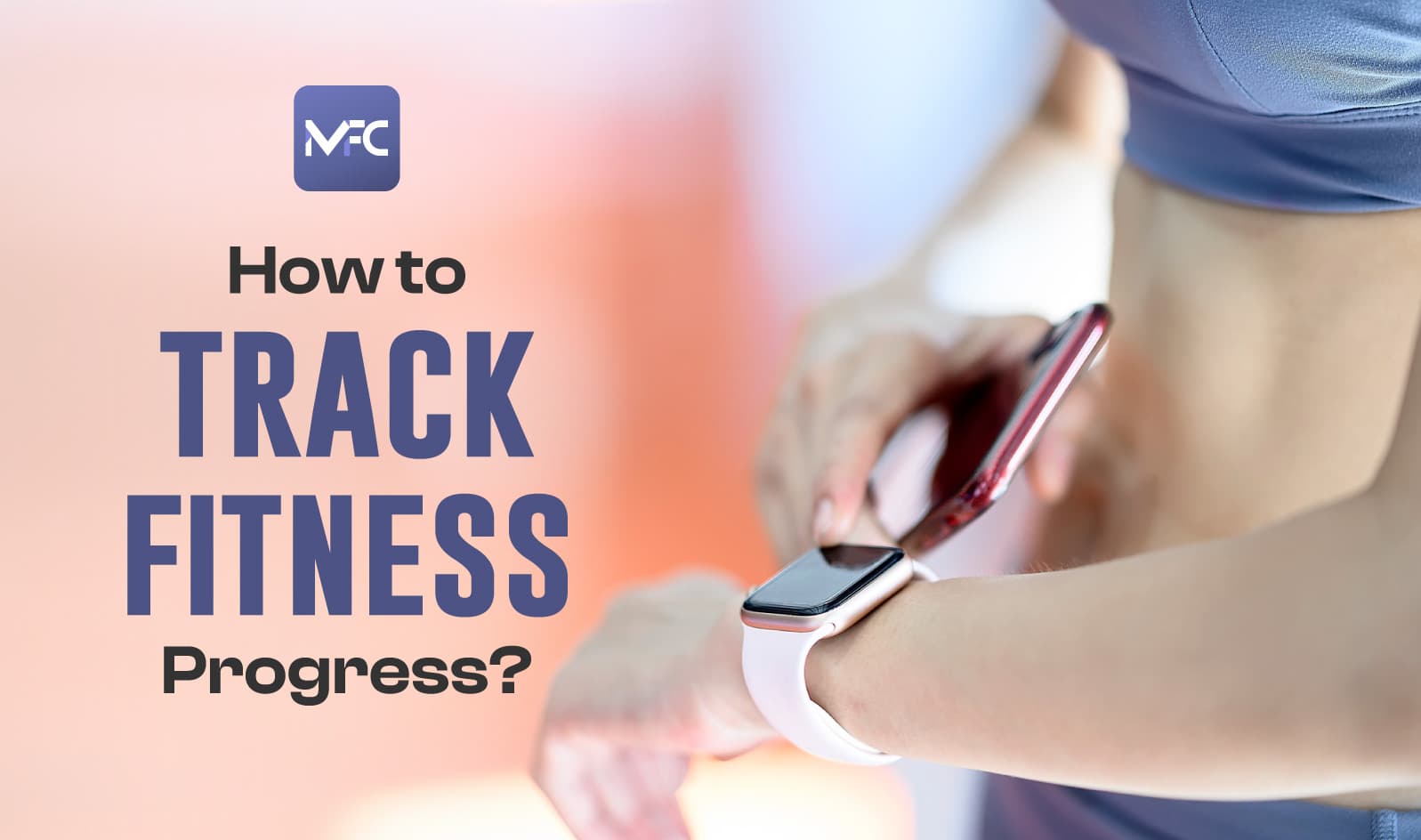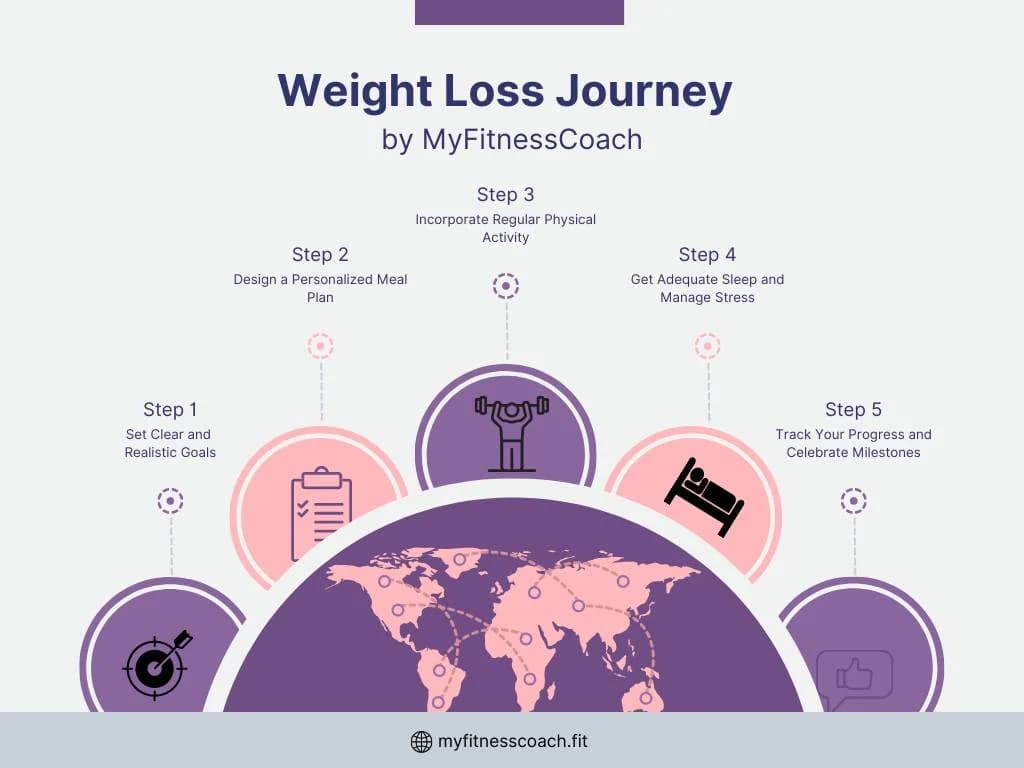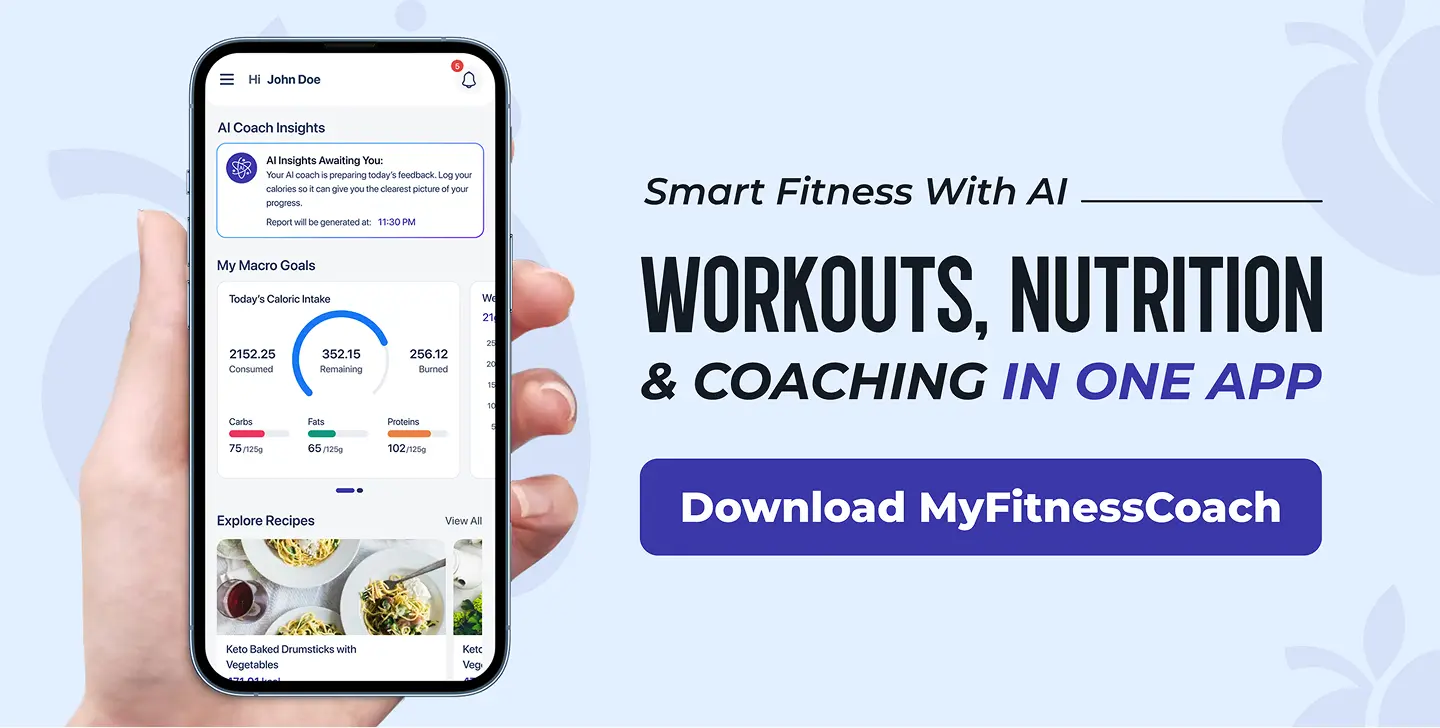How to Track Progress in Your Fitness Journey?

MyFitnessCoach
December 2, 2024
Embarking on a fitness journey is an empowering decision that can lead to remarkable transformations in both physical health and mental well-being. But keeping yourself motivated, consistent, and aware of the progress you’re making can sometimes be challenging. Tracking your fitness journey doesn’t have to be complicated; there are practical and straightforward ways to ensure you stay on course. Tracking can give you valuable insights into your strengths, help you identify areas that need more focus, and keep your motivation high.
Here’s an easy-to-follow guide on how to track your progress in your fitness journey.
Take Baseline Measurements
A fitness journey often involves changes in physical measurements, body composition, and endurance levels. Taking baseline measurements gives you a starting point, which is essential for accurate progress tracking. Here’s how to record the key measurements:
- Body Weight: Track your body weight periodically, as it’s a common indicator of fitness changes.
- Body Measurements: Using a tape measure, record measurements around your waist, hips, thighs, chest, and arms. Tracking these over time helps capture changes in body composition that a scale alone can’t show.
- Body Fat Percentage: If possible, measure your body fat percentage to monitor fat loss versus muscle gain. This can be done through body fat scales, skinfold calipers, or professional measurements at gyms.
- Photos: Take “before” photos from various angles. Repeating these monthly or bi-weekly gives you a visual record of your transformation.
These metrics together paint a comprehensive picture of your physical changes.
Log Your Workouts
Tracking your workouts is one of the simplest ways to measure your progress in strength, endurance, and consistency. Record the exercises, sets, reps, and weights for each workout. This allows you to see trends over time, like lifting heavier weights, running faster, or completing more reps with ease.
Using a dedicated fitness app like MyFitnessCoach can make this process seamless. It enables you to log workouts, track reps and weights, and monitor progress over time, ensuring you’re making headway toward your fitness goals.
Monitor Your Diet and Nutrition
Diet plays a critical role in fitness, impacting energy levels, muscle recovery, and body composition. Keeping a food journal or using an app to track daily meals can help ensure you’re fueling your body appropriately. Pay attention to macronutrients like protein, fats, and carbohydrates, as well as total caloric intake. Adjusting your diet based on how your body responds can make a significant difference in reaching your goals.
MyFitnessCoach can guide you in this area, offering personalised insights into nutrition and helping you log your meals. This way, you can see how your diet impacts your progress.
Track Strength and Endurance Improvements
When you first start, your body might not be able to handle long workouts or heavy weights. However, with consistent effort, you’ll notice improvements in your strength and endurance. Keeping track of how much weight you lift, the number of reps you complete, or how far and fast you run will show steady improvements.
You can track strength through various methods:
- One-Rep Max Test: This is the maximum weight you can lift for a single repetition in exercises like squats or bench presses. Testing this periodically shows strength gains.
- Reps and Sets: If you can lift the same weight for more reps than before, that’s also a sign of progress.
- Cardiovascular Performance: Track improvements in exercises like running, biking, or rowing by recording distance or speed.
Record Rest Days and Recovery
Recovery is a crucial yet often overlooked aspect of fitness tracking. Your body needs time to rebuild muscle tissue and restore energy. Tracking rest days and recovery activities like stretching or foam rolling can help prevent injuries and ensure you’re giving your body time to heal. A good rule of thumb is to listen to your body. If you’re consistently sore or fatigued, that’s a sign to incorporate more rest or low-intensity days.
Using MyFitnessCoach, you can log rest days and receive reminders about recovery. This ensures you maintain a balanced fitness routine.
Track Sleep and Hydration
Two often-overlooked aspects of fitness are sleep and hydration, yet both are critical for performance and recovery. Aim for 7-9 hours of quality sleep per night, and track your water intake to ensure you’re staying hydrated. Adequate rest and hydration can impact everything from workout performance to mental clarity, so including these in your tracking routine gives a more holistic view of your progress.
MyFitnessCoach can remind you to drink water, track your sleep patterns, and even offer insights into how sleep and hydration affect your fitness journey.
Assess Mental and Emotional Well-being
Physical health and mental health are intertwined, and both are essential to overall fitness. Tracking mental health changes, like mood, energy levels, or stress, can reveal patterns in your workouts or diet that might affect your motivation. Fitness isn’t just about physical changes; it’s about feeling good mentally and emotionally. Journaling or noting how you feel each week can provide insight into your fitness journey beyond just physical metrics.
Celebrate Small Wins
Fitness journeys are made up of hundreds of small steps, each of which is a victory on its own. Whether you ran an extra mile, lifted a heavier weight, or made healthier food choices, take time to celebrate these wins. Small victories keep you motivated, remind you of the progress you’ve made, and keep your momentum strong.
MyFitnessCoach encourages users to celebrate each milestone, offering positive reinforcement and reminders of achievements along the way.
Periodically Review and Adjust Goals
As you make progress, your goals may need to evolve. For instance, you might start with a goal to lose weight and, over time, shift to focus more on strength or endurance. Every three months or so, assess your progress and decide if it’s time to set new goals or adjust your current ones. This practice keeps your fitness journey dynamic and aligned with your evolving interests and abilities.
MyFitnessCoach makes it easy to review past goals, track new ones, and adjust your fitness plan as needed.
How MyFitnessCoach Can Help You Track Your Fitness Journey
MyFitnessCoach is designed to support you every step of the way, providing all the tools needed to make tracking your fitness journey simple and effective. With features that allow you to log workouts, monitor your diet, track strength gains, and even record rest and recovery days, MyFitnessCoach makes it easy to stay on top of your progress.

The app offers personalized workout plans, nutrition tracking, and goal-setting options tailored to individual needs. Additionally, MyFitnessCoach’s progress-tracking features let you measure improvements in real-time, so you can see the results of your hard work. By logging each workout, setting and adjusting goals, and celebrating milestones, MyFitnessCoach supports you in every aspect of your fitness journey.
Similar Articles
Stay informed with these similar articles.

MyFitnessCoach
October 18, 2023
What Does Body Goals Mean? A Path to a Healthy Lifestyle
In the world we live in now, lots of people talk about "body goals," which means having a body that's seen as perfect. On social media, in magazines, and on TV, we see lots of pictures of people with what seems like perfect bodies, which makes us feel like we have to look like them. But the real meaning of "body goals" is more than just looking good. It's about taking care of your whole self, not just how you look. In this article, we will discuss what does body goals actually mean and how you can achieve your body goals. Let’s get started:
.webp&w=3840&q=75)
MyFitnessCoach
September 5, 2023
How Much Protein in an Egg | The Nutritional Power
Eggs have long been a breakfast favorite for many, and for good reason. They're not only delicious but also packed with essential nutrients, making them a versatile and nutritious addition to your diet. One of the most common questions about eggs is, "How much protein is in an egg?" In this comprehensive guide, we'll delve into the world of eggs and explore their protein content, nutritional benefits, and how they can contribute to a balanced diet.

MyFitnessCoach
May 18, 2023
Fitness Guide: How Do I Start A Weight Loss Journey
Ready to start on a life-changing weight-loss journey? Congratulations for taking the first step towards being a better and happier version of yourself! Starting off a weight-loss journey may be both satisfying and stressful. With so much information available, having a well-defined plan and trusted assistance in achieving your goals is important. This article will help you start your weight-loss journey and achieve the results you desire.
